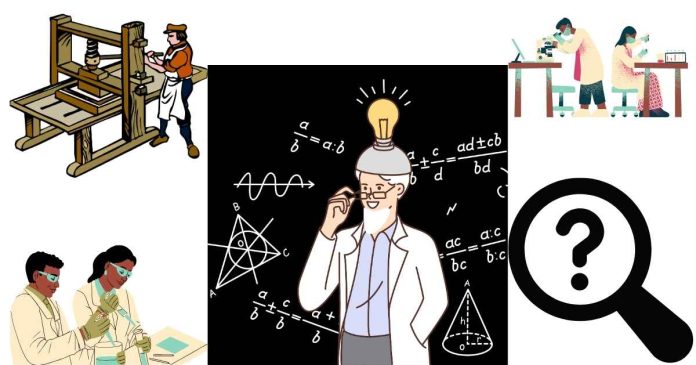The contributions of scientists throughout history have profoundly shaped our understanding of the world and advanced humanity. From groundbreaking theories to life-changing inventions, here is a list of the top 10 scientists and their notable inventions or discoveries that continue to influence our lives.
1. Sir Isaac Newton (1643–1727)
- Invention/Discovery: Laws of Motion and Universal Gravitation
Newton’s groundbreaking work in physics laid the foundation for classical mechanics. His Principia Mathematica introduced the three laws of motion and the concept of gravity, which revolutionized the scientific world and remains a cornerstone of modern physics.
2. Albert Einstein (1879–1955)
- Invention/Discovery: Theory of Relativity
Einstein’s equation E=mc2E = mc^2 changed the way we understand energy, mass, and the universe. His theory of relativity redefined space, time, and gravity, influencing everything from GPS technology to modern cosmology.
3. Marie Curie (1867–1934)
- Invention/Discovery: Radioactivity
Marie Curie was the first woman to win a Nobel Prize and the only person to win Nobel Prizes in two different sciences (Physics and Chemistry). She discovered the elements polonium and radium, and her research on radioactivity paved the way for X-ray technology.
4. Thomas Edison (1847–1931)
- Invention/Discovery: The Electric Light Bulb
Edison’s contributions to the development of the electric light bulb, phonograph, and motion picture camera revolutionized modern life. His innovations brought electricity into homes and businesses, transforming society.
5. Nikola Tesla (1856–1943)
- Invention/Discovery: Alternating Current (AC) System
Tesla’s work on alternating current (AC) electricity and the AC motor paved the way for modern electrical power distribution systems. His inventions are the backbone of electrical grids worldwide.
6. Galileo Galilei (1564–1642)
- Invention/Discovery: Telescope Improvements and Astronomical Discoveries
Known as the “Father of Modern Science,” Galileo improved the telescope and made remarkable observations, including the moons of Jupiter and the phases of Venus. His work supported the heliocentric theory and laid the foundation for modern astronomy.
7. Alexander Fleming (1881–1955)
- Invention/Discovery: Penicillin
Fleming’s accidental discovery of penicillin in 1928 revolutionized medicine, leading to the development of antibiotics. This breakthrough has saved countless lives by treating bacterial infections effectively.
8. James Watson & Francis Crick (1928–present & 1916–2004)
- Invention/Discovery: Structure of DNA
In 1953, Watson and Crick, with help from Rosalind Franklin’s X-ray diffraction work, discovered the double-helix structure of DNA. This discovery revolutionized biology and genetics, enabling advances in medicine, forensics, and biotechnology.
9. Louis Pasteur (1822–1895)
- Invention/Discovery: Pasteurization and Germ Theory
Pasteur’s germ theory of disease changed the way we think about infections. He also invented pasteurization, a process that kills harmful bacteria in food and drink, greatly improving public health.
10. Stephen Hawking (1942–2018)
- Invention/Discovery: Black Hole Radiation (Hawking Radiation)
Hawking’s work on black holes and quantum mechanics led to the discovery that black holes emit radiation, now known as Hawking Radiation. His research expanded our understanding of the universe.
Why These Scientists Matter
These scientists were not only brilliant but also innovative thinkers who solved some of the most challenging problems of their time. Their inventions and discoveries have transformed industries, saved lives, and expanded our understanding of the universe.
Their legacies remind us of the power of curiosity and perseverance in shaping the world. Whether it’s exploring the cosmos, understanding the human body, or improving daily life, their work continues to inspire new generations of scientists and innovators.


